Leave Her to Heaven: Noir, or Not?
Recently on Twitter, I was asked if classic film noir can be in color. I answered, definitively, that it can. For me, noir is more about tone and mood than any other characteristics common to films of the era. Some of the color features from the classic noir period include Niagara (1953), House of Bamboo (1955), Slightly Scarlet (1956), and Party Girl (1958).
And then there’s my favorite: Leave Her to Heaven. But is it noir? Let’s look at the facts. Urban setting? Nope. Black and white? Nah. Hard-boiled detectives, petty criminals, crooked cops? Nary a one.
But yes, I contend that Leave Her to Heaven is film noir. Here are the reasons why:
At its core, Leave Her to Heaven offers the murderous Ellen Berent, who lets nothing – not her baby’s life, that of her brother-in-law, or even her own – daunt her obsession for her husband, Richard (Cornel Wilde). It has been argued that Ellen is not a true femme fatale because her actions are driven by her mental illness. And I concede that Ellen might be a trifle more unbalanced that your garden variety fatal femme – but aren’t they all a little bit left of center? (Look at some of the classic femme fatales – Phyllis Diedrichson in Double Indemnity, Kathie Moffat in Out of the Past, Kitty Collins in The Killers, Anna Dundee in Criss Cross. Talk about twisted sisters – they definitely weren’t playing with a full deck of sanity cards.) So your lead femme in Leave Her to Heaven is a beautiful woman willing and able to use her brains as well as her beauty to accomplish a single-minded, far-from-noble goal. Sounds pretty noirish to me.
Also driving the film’s noir factor is Ellen’s hapless spouse. Despite clues that continually point him in another direction and endeavor to illuminate the truth about Ellen, Richard allows himself to be blissfully dragged along a path to ultimate tragedy. All because he is blinded by Ellen’s beauty and beguiled by her adoration. Hmm. A male who is deceived and led astray by a gorgeous woman. Noirish? I’d say so.
The feeling of film noir is woven throughout Leave Her to Heaven as well. From nearly the first frame, the sensation exists that something is going to go wrong, that all is not as it seems, that circumstances are already spiraling out of control. The film’s score, the behavior of Ellen’s mother and sister, the references to her father, the actions of her jilted fiancé, all add to this sensation – even the beautiful settings are less idyllic refuges than oppressive prisons – breeding grounds for anxiety, suspicion, and paranoia. Very noir.
For me, the major detraction to this film’s noirishness is its ending. Had the credits rolled after Richard was found guilty, it would have been the perfect conclusion. But the embrace between Richard and his good-girl sister-in-law? Not so much. Still, this is only one blip in an otherwise smooth noir sailing. From start to (almost) finish, Leave Her to Heaven comes out far darker than its colorful appearance would imply.
It’s noir, I tell you!





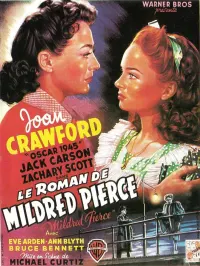




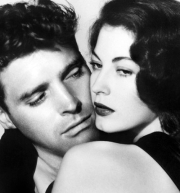
















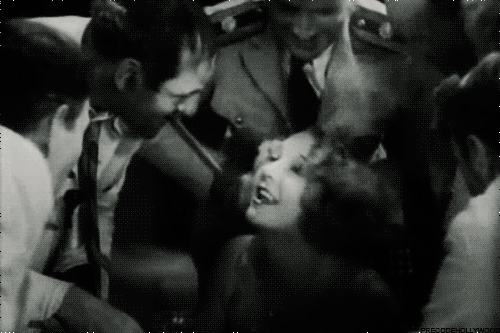


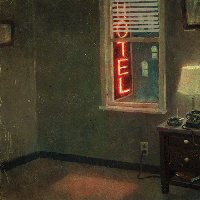
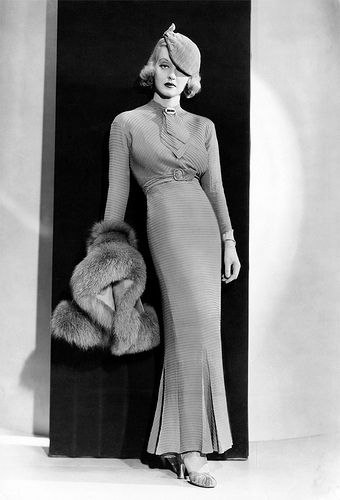



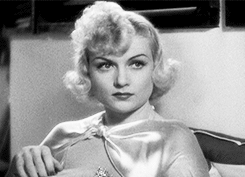

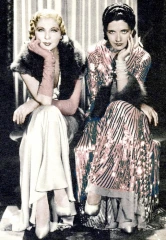





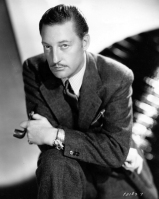




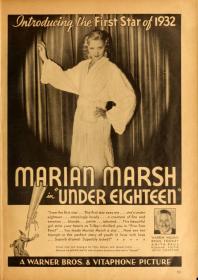
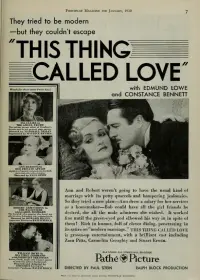

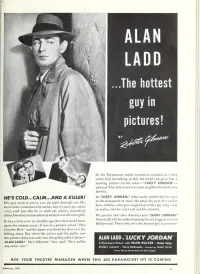
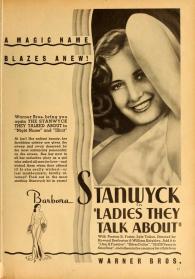

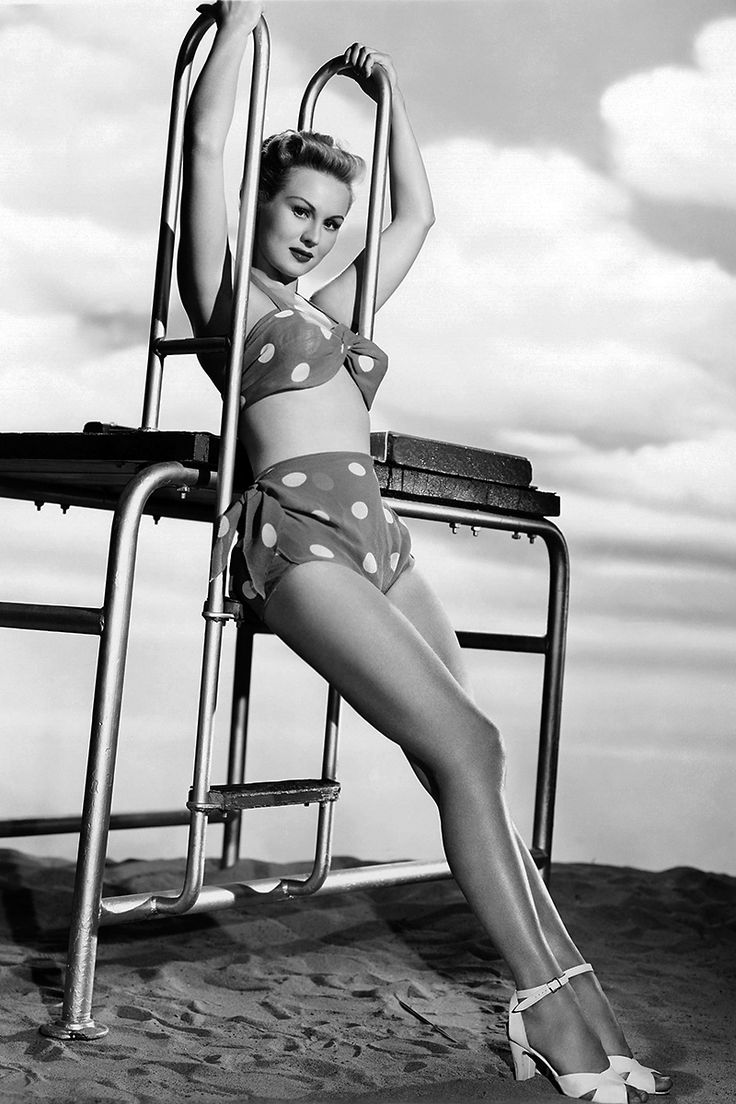







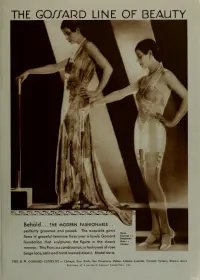

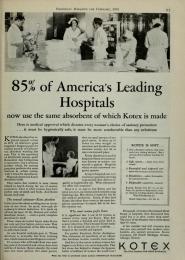

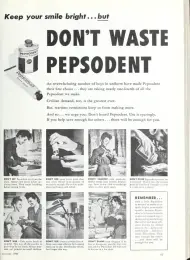


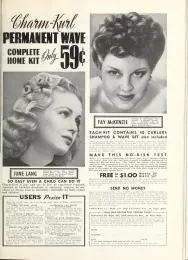







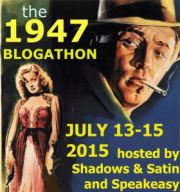

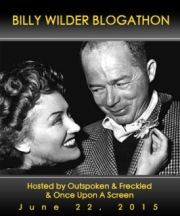





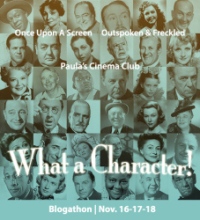






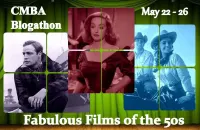
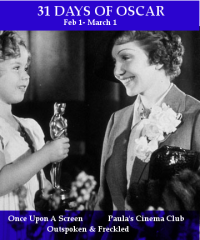













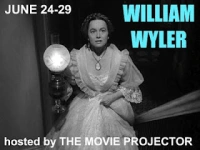





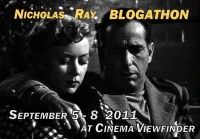

[…] not going to want to miss. (Some say it isn’t noir at all, but I’m not one of those people, see). (That was to be read in a sneering Edward G. Robinson voice.) Sorry – I […]
Late late, am always late to the game. <> You write:
““So your lead femme in Leave Her to Heaven is a beautiful woman willing and able to use her brains as well as her beauty to accomplish a single-minded, far-from-noble goal. Sounds pretty noirish to me.”
And I say, oh yeah…Ellen is baaad-ass noir. Yes, she’s pathological. But to say that she has a mental illness sort of makes her not responsible for what she’s doing. And maybe to men…or women, THAT makes her less a scary threat than admitting that Ellen knew EGGSACTLY what she was doing. She’s like Lawrence Tierney in “Born To Kill.” He’ll kill what gets in his way.
You’ve made some excellently salient points for why “Leave Her to Heaven” is noir, and I agree with you. Ha! You know, we all may have something in common with Cornel Wilde’s character. The same way he couldn’t see Ellen for what she was because of her preternatural beauty, is perhaps the same way folks can’t see “Leave Her to Heaven” is a noir, because of its painfully lush Technicolor color. ‘There are none so blind…’
Thanks for your great insights, Theresa! I’m glad to know you’ve got my back! I especially like the notion that we would prefer to think that Ellen isn’t responsible for her actions than to see her for the very beautiful monster that she was!
yes, of course it is noir. As for the ending, I agree with you that it detracts from the overall noir-ish feel of the movie but it’s not uncommon. I had the same reaction after watching Kansas City Confidential. Way too hollywood at the end. there are others that also fall into that non-noir category. But if you look at the overall picture, this movie is about as noir-ish as it gets. Great article!
Thanks so much for your comment, Monte, and the validation! I hope I’ll see you around these parts again. 🙂
[…] My girl Joan Crawford waltzed off with the Best Actress Oscar for Mildred Pierce over Ingrid Bergman in The Bells of St. Mary’s, Greer Garson in The Valley of Decision, Jennifer Jones in Love Letters, and Gene Tierney in Leave Her to Heaven. […]